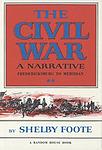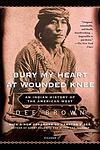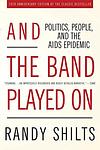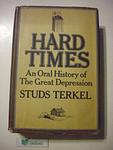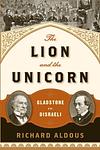The Greatest American, British "Nonfiction, History" Books Since 1950
Click to learn how this list is calculated.
This list represents a comprehensive and trusted collection of the greatest books. Developed through a specialized algorithm, it brings together 300 'best of' book lists to form a definitive guide to the world's most acclaimed books. For those interested in how these books are chosen, additional details can be found on the rankings page.
Genres
The category of "History" in books refers to the study and interpretation of past events, societies, and cultures. It encompasses a wide range of topics, including political, social, economic, and cultural developments, as well as the lives of individuals and groups who have shaped the course of history. History books can be written from various perspectives and may focus on specific time periods, regions, or themes. They aim to provide readers with a deeper understanding of the past and its impact on the present.
Countries
Date Range
Reading Statistics
Click the button below to see how many of these books you've read!
Download
If you're interested in downloading this list as a CSV file for use in a spreadsheet application, you can easily do so by clicking the button below. Please note that to ensure a manageable file size and faster download, the CSV will include details for only the first 500 books.
Download-
1. Silent Spring by Rachel Carson
This influential environmental science book presents a detailed and passionate argument against the overuse of pesticides in the mid-20th century. The author meticulously describes the harmful effects of these chemicals on the environment, particularly on birds, hence the metaphor of a 'silent spring' without bird song. The book played a significant role in advancing the global environmental movement and led to a nationwide ban on DDT and other pesticides in the United States.
-
2. The Civil War by Shelby Foote
This comprehensive three-volume series provides an in-depth and detailed narrative of the American Civil War. It encompasses the political, social, and military aspects of the war, offering a balanced view of both the Union and Confederate sides. The series also delves into the personal experiences of key figures, including generals and soldiers, as well as civilians affected by the war. This work is known for its meticulous research, vivid descriptions, and engaging storytelling style.
-
3. Dispatches by Michael Herr
This book is a first-hand account of the Vietnam War from a war correspondent's perspective. The author vividly describes the chaos, violence, and absurdity of the war, providing a raw and unfiltered look at the experiences of soldiers on the ground. The narrative is filled with gritty details and intense imagery, capturing the fear, boredom, and disillusionment that characterized the war. The book is considered a classic of war reportage, lauded for its honest and brutal portrayal of the realities of combat.
-
4. The Making of the English Working Class by E. P. Thompson
This book is a comprehensive historical analysis of the formation of the English working class from the late 18th century to the mid-19th century. The author meticulously examines various aspects of society including the Industrial Revolution, the rise of Methodism, and political movements, arguing that the working class was not a byproduct of economic factors alone, but was actively self-formed through struggles over issues like workers' rights and political representation. The book is widely regarded as a seminal text in social history due to its focus on the experiences and agency of ordinary people.
-
5. Bury My Heart at Wounded Knee by Dee Alexander Brown
This book is a compelling historical narrative that chronicles the systematic decimation of Native American tribes in the United States during the late 19th century. The author uses council records, autobiographies, and firsthand descriptions to provide a detailed account of the battles, massacres, and broken treaties that led to the destruction of the Native American way of life. The book centers on significant events such as the Battle of Little Bighorn and the Wounded Knee Massacre, offering a voice to the often overlooked Native American perspective.
-
6. Ways Of Seeing by John Berger
This book is a seminal work of art criticism that challenges traditional Western cultural aesthetics by examining the ways in which we culturally learn to view art, particularly the impact of modern mass-reproduction on our experience of seeing. The author argues that the context, or "gaze," through which we perceive art significantly affects its meaning and our appreciation of it. The book also explores the portrayal of women in art and society, the relationship between art and ownership, and the connection between historical context and visual perception. It is a provocative critique that encourages readers to reconsider the role of visual imagery in our everyday lives and the power structures inherent in the act of looking.
-
7. The Making of the Atomic Bomb by Richard Rhodes
This comprehensive book provides an in-depth account of the development of the atomic bomb during World War II. It explores the scientific advancements that made the bomb possible, the political decisions that led to its creation, and the moral dilemmas faced by the scientists involved. The book also details the personalities of key figures in the Manhattan Project, the effects of the bomb on Hiroshima and Nagasaki, and the impact of nuclear weapons on the world.
-
8. The Guns of August by Barbara Tuchman
"The Guns of August" is a detailed and engaging account of the first month of World War I. The book explores the events leading up to the war, the political and military strategies of the various countries involved, and the critical decisions that shaped the course of the conflict. It presents a vivid picture of the war's early stages, highlighting the miscalculations, miscommunications, and misunderstandings that led to one of the most devastating wars in history.
-
9. The Great War and Modern Memory by Paul Fussell
"The Great War and Modern Memory" is a critical analysis of the impact of World War I on the English society and culture. The author explores the war's influence on literature, language, and symbolism, arguing that the horrific experiences of the war drastically altered public perception and understanding of conflict, honor, and heroism. The book combines literary criticism, history, and social commentary to provide a comprehensive examination of the war's lasting effects on the collective memory of the English-speaking world.
-
10. A Time Of Gifts by Patrick Leigh Fermor
The book is a vivid memoir that chronicles the adventures of a young man as he embarks on a remarkable journey on foot across Europe in the 1930s. Starting from the Hook of Holland, he traverses through landscapes and cities, encountering a diverse tapestry of cultures, languages, and historical remnants. Along the way, he is welcomed by a variety of individuals, from aristocrats to peasants, who enrich his experience with their stories and hospitality. His travels provide not only a physical journey through the continent but also a journey through time, as he reflects on the complexities of Europe's past and the ominous shadows cast by the approaching Second World War.
-
11. And the Band Played On by Randy Shilts
This book is a comprehensive chronicle of the emergence of the AIDS epidemic in the United States in the 1980s. It explores how the disease was initially ignored by many health professionals and politicians, leading to its spread and the deaths of thousands of people. The book also examines the impact of the disease on the gay community and the role of various institutions, including the medical community, the media, and the government, in responding to the crisis. It's a powerful critique of the indifference and negligence that allowed the disease to become a global pandemic.
-
12. Battle Cry of Freedom by James M. McPherson
"Battle Cry of Freedom" is a comprehensive exploration of the events leading up to, during, and following the American Civil War. The book delves into the political, social, and economic factors that led to the war, and examines the strategies, battles, and key figures of this pivotal period in American history. It also provides an in-depth analysis of the consequences of the war and its impact on the United States.
-
13. Guns, Germs, and Steel by Jared Diamond
The book is a comprehensive exploration of the different trajectories of human societies throughout history. It argues that environmental factors, rather than racial or cultural differences, are the primary reason why some societies developed more advanced technology and political systems. The author uses a multidisciplinary approach, drawing from fields such as geography, evolutionary biology, and linguistics, to support his thesis. The book covers a wide range of topics, including the domestication of plants and animals, the invention of writing, and the spread of diseases.
-
14. The Face of Battle by John Keegan
"The Face of Battle" is a military history book that examines warfare from the perspective of the common soldier. It explores three significant battles in detail - the Battle of Agincourt in 1415, the Battle of Waterloo in 1815, and the Battle of the Somme in 1916. By focusing on the experiences of the individual soldiers, the book provides readers with a unique insight into the reality of war, the strategies employed, the conditions faced by soldiers, the impact of technological advancements on warfare, and the human cost of these historic battles.
-
15. Cosmos by Carl Sagan
This landmark book is a majestic cosmic tour that delves into the nature of the universe, exploring a vast array of topics including the science of space and time, the origins of life, and the human quest for understanding. It intertwines science and philosophy, taking readers on a journey through the history of astronomy, the development of the scientific method, and the incredible vastness of the cosmos. The narrative is infused with a sense of wonder and awe at the complexity and beauty of the universe, as well as a thoughtful consideration of the place of humanity within it. The work is a celebration of human curiosity and a powerful advocate for the importance of science and education in helping us to understand our world and our place in the cosmos.
-
16. The City in History by Lewis Mumford
"The City in History" explores the development of urban life over the course of history. The author provides a comprehensive evaluation of cities from ancient times to the modern era, examining their architectural, social, political, economic, and cultural aspects. The book also offers a critique of the urbanization process, highlighting its negative impact on human life and the environment, while advocating for a human-centered approach to urban planning.
-
17. Hard Times: An Oral History of the Great Depression by Studs Terkel
This book is a compelling oral history of the Great Depression, featuring a collection of interviews from a diverse range of individuals who lived through the era. The interviewees include both the ordinary people and famous figures of the time, from businessmen and politicians to artists and criminals. The book provides a vivid, first-hand account of the economic hardship, social changes, and emotional struggles experienced by people during the 1930s, offering a unique perspective on this significant period in American history.
-
18. Disraeli by Robert Blake
This biography provides a comprehensive look at the life and political career of Benjamin Disraeli, one of the most influential figures in 19th-century British politics. The book explores his rise from a debt-ridden novelist to the prime minister of the United Kingdom, highlighting his charismatic personality, sharp intellect, and political acumen. It also delves into his unique approach to politics, his relationships with Queen Victoria and other influential figures, and his enduring impact on British conservatism.
-
19. The Immortal Life of Henrietta Lacks by Rebecca Skloot
The book tells the story of Henrietta Lacks, a poor African American tobacco farmer whose cells, taken without her knowledge in 1951, became one of the most important tools in medicine, vital for developing the polio vaccine, cloning, gene mapping, and more. Henrietta's cells have been bought and sold by the billions, yet she remains virtually unknown, and her family can't afford health insurance. The book explores the collision between ethics, race, and medicine; of scientific discovery and faith healing; and of a daughter consumed with questions about the mother she never knew.
-
20. Old Glory by Jonathan Raban
In this travelogue, the author embarks on an ambitious solo journey down the Mississippi River, navigating the complex currents of both the waterway and the American heartland. Steering a 16-foot aluminum motorboat, he delves into the diverse cultures, histories, and landscapes of the river, encountering a vivid cast of characters along the way. The narrative captures the essence of the United States during a particular period, exploring the intersection of the past and present, the urban and rural, and the mythic versus the everyday. Through his eyes, readers experience the mighty river's role as both a conduit for adventure and a mirror reflecting the nation's soul.
-
21. Roll, Jordan, Roll by Eugene Genovese
"Roll, Jordan, Roll" is a comprehensive exploration of slavery in the United States, specifically focusing on the complex relationships between slaves and their masters. The book examines how slaves managed to preserve their culture, humanity and dignity, while also highlighting the paradoxical nature of a system where slave owners were dependent on their slaves for their livelihoods. It delves into the ways in which slaves resisted their oppression, and the strategies they employed to survive and create their own communities within the confines of the brutal institution of slavery.
-
22. The Warmth Of Other Suns by Isabel Wilkerson
"The Warmth of Other Suns" is a powerful and deeply moving narrative that chronicles the Great Migration, a significant event in American history that saw millions of African Americans leave the South in search of better opportunities and freedom from racial oppression. Through the compelling stories of three individuals, the book explores the challenges, triumphs, and sacrifices made by these courageous migrants as they embarked on a journey to find a new life in the North and West, ultimately reshaping the social and cultural landscape of America.
-
23. Alan Turing by Andrew Hodges
This biography provides a comprehensive look at the life and work of a pioneering computer scientist and mathematician who played a crucial role in breaking the Enigma code during World War II. It delves into his groundbreaking contributions to the development of computer science, his tragic prosecution for homosexuality, and his enduring legacy in the field of artificial intelligence and computing. The book not only celebrates his scientific achievements but also examines the social context of his time, shedding light on the challenges he faced and the impact of his work on future generations.
-
24. The Devil In The White City by Erik Larson
This book intertwines the true tales of two men during the 1893 Chicago World's Fair: Daniel H. Burnham, the architect responsible for the fair's construction, and H.H. Holmes, a serial killer masquerading as a charming doctor. The narrative alternates between the story of Burnham, his challenges and successes in building the fair, and the chilling story of Holmes, who used the fair to lure his victims to their death. It's a vivid portrayal of the Gilded Age and a chilling exploration of one of America's first known serial killers.
-
25. Modern Times by Paul Johnson
"Modern Times" is an in-depth historical analysis of the 20th century, covering major events, movements, and figures that have shaped the modern world. The author critically examines the impacts of World War I and II, the Cold War, the rise of totalitarian regimes, and the influence of religion and ideology on politics and society. The book also explores significant scientific and technological advancements, and their effects on human perception and behavior. It provides a comprehensive understanding of the complexities and contradictions of the 20th century, and how they continue to influence the 21st century.
Reading Statistics
Click the button below to see how many of these books you've read!
Download
If you're interested in downloading this list as a CSV file for use in a spreadsheet application, you can easily do so by clicking the button below. Please note that to ensure a manageable file size and faster download, the CSV will include details for only the first 500 books.
Download
